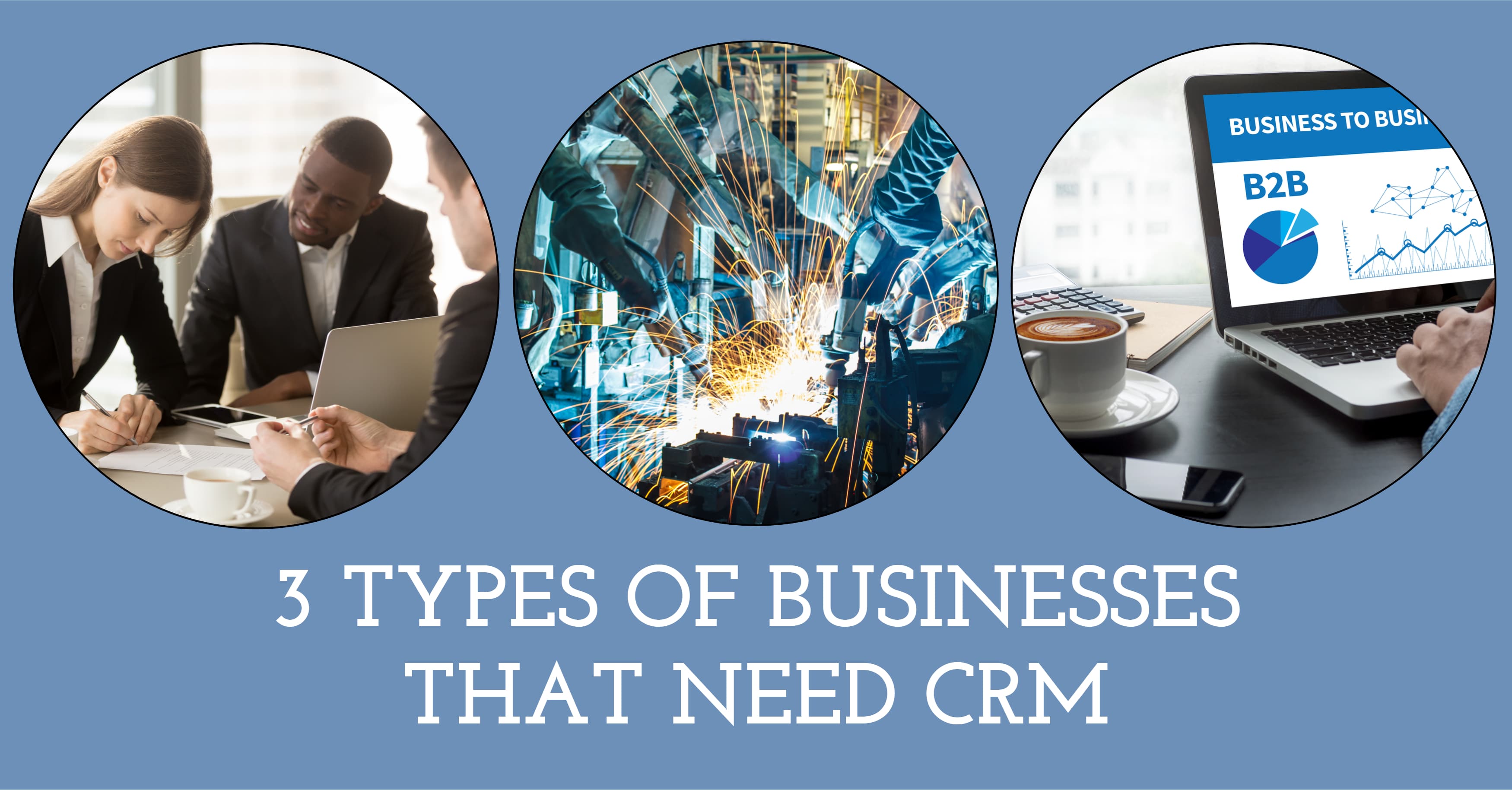Does Your Company Need CRM?
Does CRM (customer relationship management) really transform businesses, make customers happy and improve profitability? Looking at the claims various CRM vendors make might have you wondering if this praise really holds up. Or you might question if CRM is a fit for your company. When properly implemented, CRM benefits an array of businesses. Furthermore, technological advancements and the growing power of the consumer make customer relationship management software more important than ever. But each company requires distinct functions to best handle their sales data. Below, we explain the specific advantages that three types of businesses can enjoy with a CRM implementation.
Manufacturer
A CRM system offers a variety of useful functions to power manufacturing success. Large OEMs, for example, will be focused on renewal and upsell and will have multi-phase contracts to keep track of. Here the CRM will function as a collaboration tool between sales, marketing, engineering and support. Manufacturers also need to form relationships with dealers and distribution networks. As their dealer network grows, manufacturers require robust CRM systems to streamline the quote-to-order process and effectively organize their data.
CRM proves especially beneficial to manufacturers when it is integrated with other systems. One common integration is between CRM and ERP (enterprise resource planning). This will give you better coordination between the various departments and stages involved in the sales process. An integrated system can also transform your organization into a lean enterprise. Manufacturers can leverage CRM data to develop a pull-production system that aligns production and inventory with demand to slash inventory waste.
Professional Services Firm
At a professional services firm, nothing proves more valuable than relationships with clients and industry colleagues. Longstanding relationships drive new sales opportunities. Your loyal clients build your company’s reputation by providing business referrals and writing positive reviews. With these relationships forming the core of your business, a CRM instance serves as a vital asset for success, but it must support your unique needs.
Let’s say your organization, a specialized financial services firm for example, has no titled sales or account managers. Your relationships are long-standing and there is no classic sales focus. A CRM system will be applied differently than it would be at a place with dedicated account executives. Here the focus would be on collecting and organizing your customer’s data. You will be able to keep track of emails, contact lists, upcoming events, past attendance and planning documents. Reports will include information on customers and prospects and activity summaries by segment. Additionally, the sophisticated analytics, forecasting and AI features of the most advanced CRM platforms will empower users to personalize client experiences to encourage loyalty.
B2B Company
Business-to-business (B2B) companies often undergo complex sales cycles. Their clients, after all, are businesses that have their own complex needs and processes and are seeking products or services that tend to be expensive and customized. This results in longer sales cycles, greater attention to customer service and interactions with multiple decision makers.
CRM will simplify B2B transactions, utilizing advanced data management tools to track leads and clients. Increasingly advanced predictive analytics and AI features enable sales teams to determine the next best steps in their sales cycles and optimal methods to approach each client. Additionally, CRM automates sales processes to expedite transactions without sacrificing data quality. CRM software empowers B2B companies to maintain accurate data and stay on top of their sales funnels to gain a competitive edge in the marketplace.
Wrap Up
Manufacturing, professional services and B2B companies are three of the many businesses that have experienced improved customer relationships and higher profits after implementing CRM. But you can’t just use any old CRM platform and plug it into your system. With CRM systems inundating the enterprise software marketplace, it’s crucial to find the product that satisfies your business needs.
Datix, a premier enterprise software consulting firm for 25 years, is a certified partner of both Microsoft Dynamics 365 and Salesforce. With expertise in two of the top CRM platforms, we are uniquely positioned to determine which system works for your sales process. Plus, our expertise in CRM as well as ERP, eCommerce and integrations makes us a one-stop shop for all your software needs.
Thinking about CRM? Whether you’re one of the three businesses listed above or another type of company exploring the potentials of enterprise software, CRM could be just the tool you need to drive sales. For more on the benefits of CRM, contact our team today!


